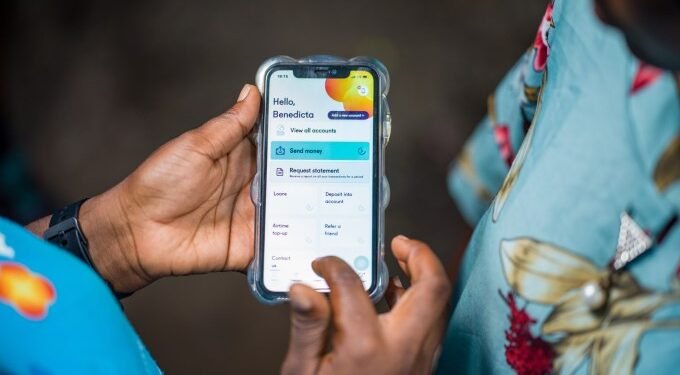Africa’s top digital banking platforms typically come from high-growth, populous markets like Nigeria, South Africa, and Egypt. But Affinity Africa, an upstart from Ghana, wants to join the conversation. The startup has raised $8 million in seed funding to expand its financial products further across the country, where mobile money is the dominant financial tool.
While mobile money has become the go-to for financial transactions, the traditional banking sector in Ghana and Africa as a whole remains highly profitable. Since the pandemic, banks in Ghana have recorded growth with an after-tax return on equity (RoE) that exceeds the global average.
However, these profits rely heavily on fees, while inefficiencies like high operational costs, extensive in-person paperwork, and long onboarding times have left millions underserved.
Today, less than 10% of businesses in Africa have access to credit, and over 60% of adults lack formal financial services, per World Bank data. This growing gap has fueled demand for digital banking alternatives like Affinity, which offer a cheaper, more inclusive model.
Affinity has onboarded over 50,000 customers since its launch last October, its founder and CEO Tarek Mougaine says. Notably, 65% of its users had never accessed formal banking products before, and over 60% are women working in the informal sector.
So why has it taken this long for a digital banking upstart to gain such traction in Ghana? The country’s strict banking regulations play a big role. Unlike neighbouring Nigeria, where digital banks can easily operate with microfinance licenses, such licenses are rare, expensive and take time to get in Ghana, making it difficult for fintechs to enter the space.
“Ghana’s regulator is focused on protecting consumers, especially in deposit-taking institutions,” Mougaine told TechCrunch. “We had to prove strong risk management, break even as a microfinance institution, and align our mission with the government’s goal of banking the unbanked. What ultimately convinced them was how our digital platform reduces friction and lowers banking costs for individuals and micro, small and medium enterprises (MSMEs.)”
From investment banking to fintech disruptor
Mougaine, who comes from a fourth-generation Ghanaian family of Lebanese descent, studied in the U.K., earning a bachelor’s and master’s degree before launching his career in academia and finance. He later worked as a Director at Man Group, a $160 billion global investment fund. There, he worked on major IPOs, including Visa and Compartamos, Latin America’s largest microfinance institution.
After returning to Ghana ten years ago, Mougaine looked to solve Africa’s financial inclusion problem, a challenge often highlighted in global consulting reports.
“Numbers like Africa’s $331 billion credit gap are still being quoted today,” he said. “Nothing has really changed. That made me obsessed with building a full-fledged retail bank for MSMEs, similar to what Santander, Lloyds, or Chase Bank offer in Europe and the U.S.—but tailored for Africa’s majority.”
He and a group of friends and family raised $2 million to acquire a microfinance bank in 2020. They included funds from selling his London house, he claims. The entity, which received a savings and loans license, first of its kind granted in over 10 years, served as a testing ground for its current banking solutions.

By 2022, Affinity raised an additional $3 million in a pre-seed round to upgrade this license. Following months of stealth testing, the fintech officially launched its app last October after receiving approval from Bank of Ghana, the country’s apex bank.
The Ghanaian fintech serves both individuals and micro-enterprises, which are often indistinguishable in Africa. Customers get free savings and current accounts with no transaction limits, and the platform immediately begins credit-scoring users based on their transaction history.
After a few months of usage, Affinity extends lines of credit with monthly interest rates of 3-7%. The Accra-based fintech has disbursed over $15 million in loans across various products, with instant loans growing 30% month-over-month and a non-performing loan (NPL) rate of 3%.
A hybrid approach: digital banking with a physical touch
Customers can also access other banking services, including savings, payments, investments, and transfers to banks and mobile money wallets. Last month, 89% of deposit inflows, which have grown 54% month-over-month since its launch, came from mobile money top-ups, with the remaining 11% from bank transfers.
Loans account for over 90% of Affinity’s revenue, with the remaining 10% coming from fees and commissions on services like utility bill and internet payments via USSD and the mobile app. Its revenue has increased 37% month-over-month over the last six months, according to Mougaine.
Like many digital banks in Africa, Affinity blends online banking with offline touchpoints through its agent network. These agents, about 30 of them, meet small businesses in person, onboard them to the app, and help bridge the trust gap for first-time digital banking users.
Out of its 50,000 customers, 26,000 joined through the agency network, and 24,000 signed up using the mobile app. Notably, 55% of agent-acquired customers have transitioned to the app, showing strong digital adoption after onboarding.
“This shift has led us to rethink our agency strategy—focusing on using agents for onboarding, initial education, and driving digital literacy to encourage app adoption. We’re excited to refine this hybrid growth approach as we scale,” Mougaine said.
Affinity’s $8 million seed round was led by European VC firms Grazia Equity (Germany) and BACKED VC (London), marking their first African investment. Other investors include Enza Capital, Launch Africa, Renew Capital, Finca International, Attijariwafa Ventures, Impact Assets, joining Eldon Capital an early backer.
“At Backed, we are founder-first, and we couldn’t think of a better person to build Africa’s local bank than Tarek,” said Andre de Haes, founder and managing partner at Backed. “He started his career investing in banks through the 2008 financial crisis, became an expert in regulation and strategy, and has built a world-class banking software stack for Affinity from the ground up. His ability to connect with and understand customers has driven impressive early user numbers.”










